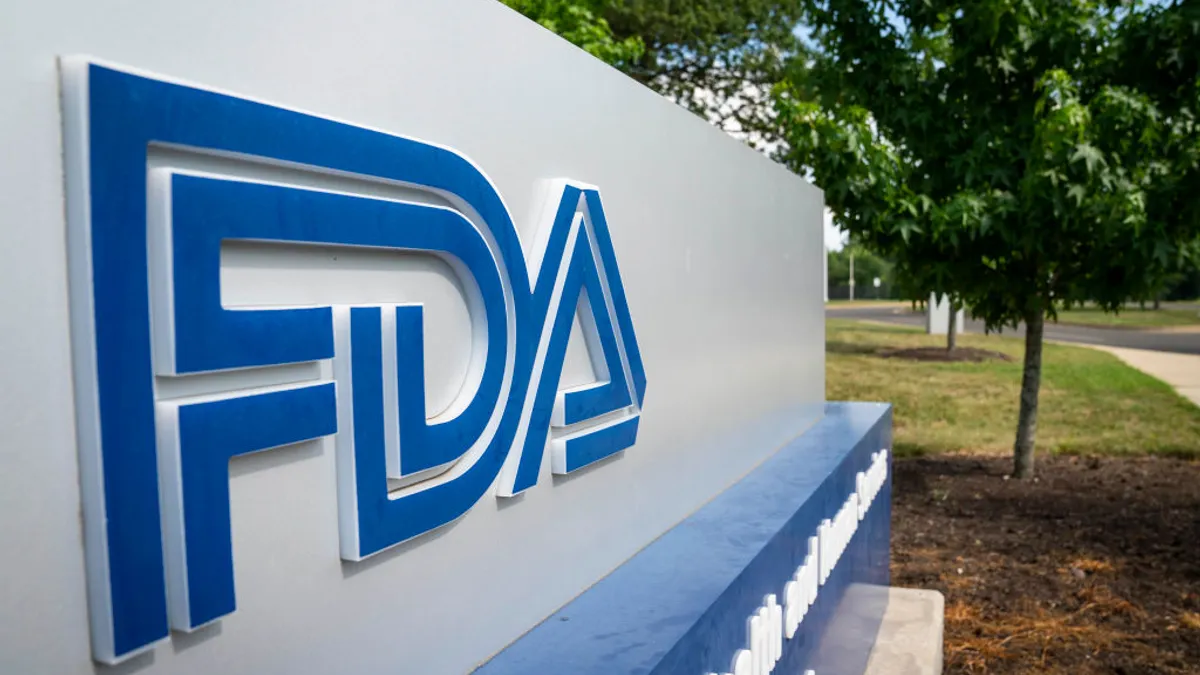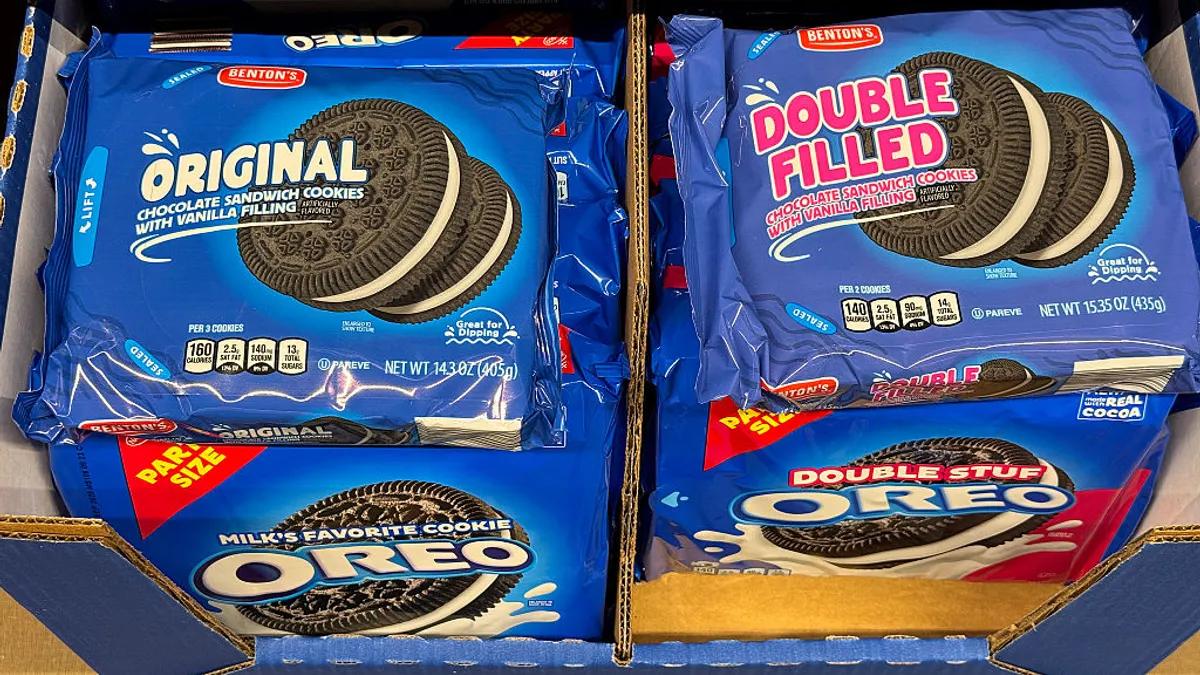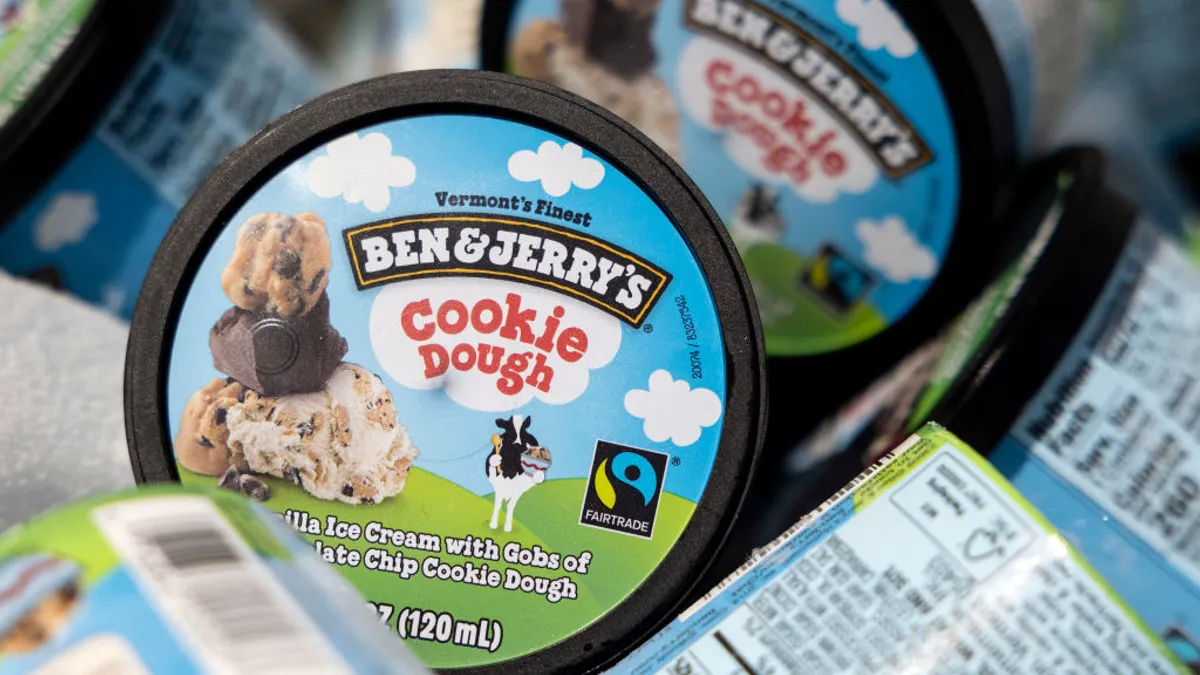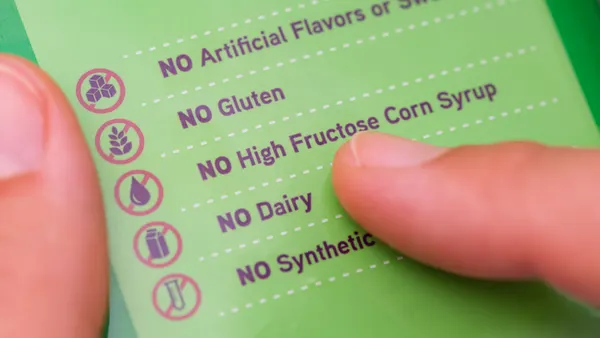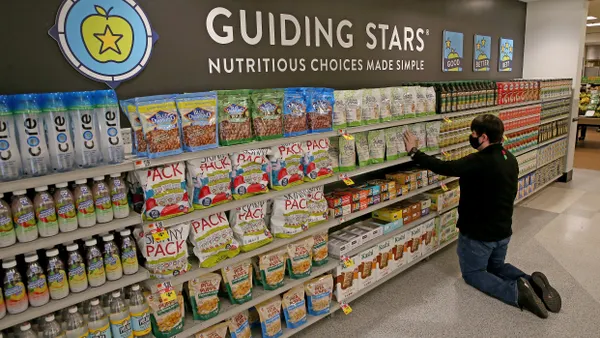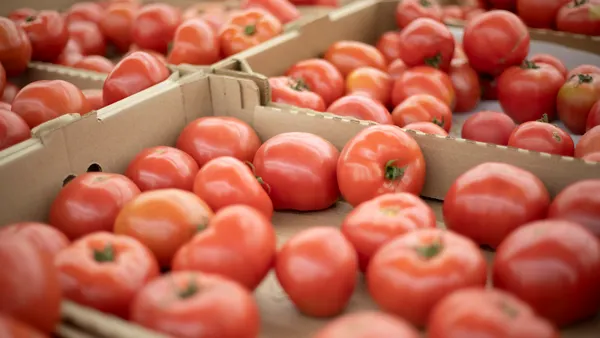Dive Brief:
- The FDA proposed a ban on the color additive Orange B, saying it hasn't been used by the food industry for close to half a century.
- The proposal revokes the approval of Orange B for coloring the casings or surfaces of frankfurters and sausages. The agency says use of the additive appears to have “been abandoned," making the regulation "outdated and unnecessary."
- The ban comes as the FDA ramps up pressure on food companies to voluntarily remove artificial colors. The agency previously said it is also preparing to revoke Citrus Red No. 2, another lesser-used additive.
Dive Insight:
With the FDA's authority to revoke artificial food dyes in question, the agency is targeting rarely used additives that are unlikely to garner industry pushback.
Orange B has not been certified as a color for use since 1978, according to the proposed rule. Citrus Red No. 2, another additive that could also be banned, is only used on the skins of some citrus products. The Center for Science in the Public Interest has said the amount a person would consume of Citrus Red No. 2 is so small that "the risk is not worth worrying about."
The Trump administration is relying on voluntary compliance to eliminate the six remaining certified artificial dyes, as an outright ban would likely result in legal challenges. The FDA has not provided "new reliable data or information" that would prove artificial dyes pose health risks, creating hurdles to regulation, according to the law firm Buchanan.
Early this year, the Biden administration banned Red Dye No. 3, citing studies showing the color’s link to cancer in rats. The administration cited a 1960 rule that allows authorities to revoke approval of chemicals when they're found to cause cancer in humans or animals.
"Ultimately, a change in regulations would be required to ban [other] ingredients, just as the Biden administration FDA did in January in revoking the authorized uses of FD&C Red No. 3," law firm Akin said in an update.
A New York congresswoman recently introduced a bill that would revoke the legal status of commonly used food dyes, building on recent state-level legislation seeking to ban synthetic colors. As of March, lawmakers in 20 states have introduced nearly 40 bills aimed at regulating or banning food additives, according to the National Conference of State Legislatures.


